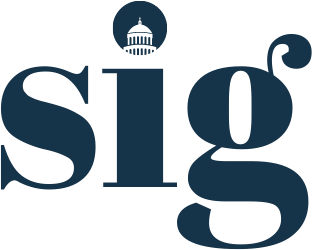The Western Electricity Coordinating Council (WECC) promotes Bulk Electric System reliability in the Western Interconnection. WECC is the regional entity responsible for compliance monitoring and enforcement. In addition, WECC provides an environment for developing reliability standards and coordinating the operating and planning activities of its members.
WECC is geographically the largest and most diverse of the eight regional entities with delegated authority from the North American Electric Reliability Corporation (NERC) and Federal Energy Regulatory Commission (FERC). The WECC region extends from Canada to Mexico and includes Alberta and British Columbia, the northern part of Baja California, Mexico, and all or parts of the 14 Western states in between.
WECC’s mission is to effectively and efficiently mitigate risks to the reliability and security of the Western Interconnection’s Bulk Power System. With an interconnection-wide perspective; an understanding of stakeholder needs; clearly communicated insights, analyses and outreach; and highly skilled and engaged employees, WECC is the voice of reliability throughout the Western Interconnection.
For more information, visit www.wecc.org.
2024 Fellowship Project
There are many factors driving the changing resource mix and the growing demand for electricity. As a result, we see the need for many future resources, most of which are inverter-based resources (solar, wind). Significant advancement in inverter-based technologies is also changing what services these units can provide. WECC collects data for forward-looking models and often no specific data is available for future units.
This internship will help industry develop generic transient stability models for future resources. If a data submitter does not provide a model for a future unit, but does give some information about what type of unit is expected (solar, wind, etc.), WECC would use the generic data developed in this project to represent the generator until more information about the resource is available. To do this, the interns will:
- Research the latest developments in generation technology,
- Research the available and approved transient stability models,
- Develop parameters for the needed model(s), and
- Meet regularly with WECC staff and industry experts to ask questions and provide updates.
By the end of the internship, students will be able to present the findings of the analysis to the WECC Reliability Assessments and Modeling team, industry experts, and others as needed or as time allows.
Potential Mentor
Enoch Davies, Manager—Reliability Modeling, will be the mentor for this project. The goal of the WECC reliability models is to promote the reliability of the bulk power system in the Western Interconnection. Mr. Davies first came to WECC in 2005 as an Assistant Engineer. He later moved to the Reliability Modeling department as an engineer to help develop the WECC base cases used widely in the Western Interconnection for transmission planning and generator interconnection. He holds a Bachelor of Science in electrical engineering from the University of Utah and an Master of Engineering in power systems from the University of Idaho.
2023 WECC Fellows
- Julio Contreras, MS ’24 Civil and Environmental Engineering
- Luke Veit ’25, Economics
- Learn more about Julio and Luke’s experience at WECC:
Eligibility and Requirements:
The ideal student candidates will have the following skills and knowledge:
Skills:
- Demonstrated research and analytical skills.
- Ability to quickly understand complex topics.
- Ability to think creatively, critically, and broadly about issues affecting electric reliability.
- Proficiency with transient stability models and running associated software like PSLF, PowerWorld, or PSSE/E and Python.
- Strong written and spoken communication skills.
- Experience using Microsoft Word, Excel, and PowerPoint.
- Ability to work independently as a member of a research team, show initiative, and seek guidance when necessary.
- Ability to collaborate with stakeholders outside of immediate work group.
Knowledge:
- Awareness of issues affecting electricity reliability.
- Interest in applying knowledge to understanding and mitigating reliability risks in the Western Interconnection.
All Shultz fellows must be enrolled in the spring quarter before their fellowship.
All Shultz fellows must take a one-unit spring workshop course, ‘Energy Policy in California and the West’ taught by Professor Bruce Cain and Visiting Fellow Felicia Marcus that will provide an in-depth analysis of the role of California state agencies, the Western Interstate Energy Board, and the Western Electricity Coordinating Council in driving energy policy development, technology innovation, and market structures. Course number is CEE 263G / POLISCI 73 / PUBLPOL 73 / ENERGY 73. Schedule: Wednesdays from 9:30 am – 10:20 am (Spilker 143).
